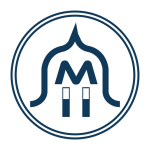[ A Complete Website Related to Islam (Kalema, Namaj, Zakat, Hajj, Roja)]

The way to Follow Islam
First of all, thank you for making us as Ashraful Makhlukat before the Almighty. Grateful that He wants to grant us the Tawfik of being born in our family. [We are not destined to be born in a non-Muslim family
Blessings and salutations to the great Prophet Muhammad Mustafa Uchawila Wasallam, the backbone of humanity; Always worried about the emancipation of the Ummah. As well as the prayer of the great Lord – He increases the status of all the Sahabah Ameen including the four Caliphs of Islam.
Dear friends, We all know that Islam is a complete life. Some things have been done for the welfare of people. We can learn about all matters including halal and haram, right and wrong in the Quran and Hadith. Rarely in the current generation, there are instructions on how to solve a problem (Ijma and Qiyas) not found in Al-Quran Hadith
So we have no chance to follow Islam in a fabricated way. Islam should be followed in the manner of Hazrat Mohammad Mustafa Uwasallam, the greatest of all levels, who was carried out with the thought of the welfare of the whole humanity.
He guides us through his actions, starting from the method of waking up in the morning to the method of going to sleep at night, getting up and sitting, reading and returning, talking and drinking, working and selling, giving and giving, and wearing clothes. replace with All that he has said in front of such a great man is the lawful statement of all ummahs until the Day of Judgment and all that he does not say is becoming haram for the Day of Judgment.
We ask questions in the light of the pure Quran and Sunnah about Halal-Haram, Farj, Wajib, Sunnah, etc. InshaAllah.
The original discovery is from the Quran, what is halal (what)?
Truth-Al-Quran- He has made the sense and the good lawful and the impure and harmful forbidden. (Surah: Araf, verse-157). [ Halal number, but Haram limited. [Truth] Except for the Haram mentioned in the Quran, all the rest are Halal.]
Al discussion about haram-
‘Forbidden to you are dead animals, blood, flesh of swine, animals sacrificed to other than Allah, which die by voice, which die by blow, which die by falling from place, which die by the height of a horn. whom wild beasts have devoured, but what ye shall do. The animal which is sacrificed in the sacrifice and which is distributed by the fortune-teller Shara. The only act of sin. Today the disbelievers have lost their faith. don’t be afraid of me Today I declare my deen complete, I choose Islam to support me fully and for deen. So the person who is ravenous with hunger, but is not prone to any sin, surely Allah is Forgiving. (Surah Al-Mayda, verse-3)
The main foundation or pillars of Islam are 5 (five). For example:
- a) Kalima (b) Namaz (c) Fasting (d) Hajj (e) Lokat. [ Various topics we have discussed in the early part of ‘Muslim Community Bangladesh Apps ]
Ways to achieve authenticity: shower –
That is why bathing is obligatory
(1) If it is the mans fault for conjugal intercourse, or in any way, the dream of ejaculation; (2) when women menstruate or have periods; (3) bleeding after childbirth; (4) Bathing the deceased is for the living (fard); (5) Conversion of any non-Muslim to Islam.
Scoring method: (3 obligatory baths)
1) Kuli 2) Nose water 3) Wash the whole body well.
Ablution: That is why ablution is obligatoryn (1) To pray (Nafal Namaz); (2) for janaza [note, supplication is not prayer] (3) for prostration in recitation; (4) To touch the Holy Quran [for the purpose of recitation or before any touch mentioned in the verses of the Quran]
* Ablution is obligatory for a reason; That is for circumambulation of the Kaaba house.
Method of performing ablution: (4 obligatory ablutions):
1) Washing the entire face 2) Washing up to the elbows of both hands 3) Washing the head 4) Washing up to the ankles of both feet
[Note, water must be applied to the base of the hair during ablution and bathing. If the ablution bath is not pure.
Ways to perform ablution: (15 Sunnahs of ablution): 1) Sunnah to intend to achieve truth 2) Recitation of Bismillah Sunnah 3) Sunnah to wash wrists three times 4) Sunnah to perform Miswak 5) Sunnah to perform Quli three times 6) Sunnah to water the nose three times 7) Washing all three times Sunnah 8) Elbow three times. Washing Sunnah 9) Washing left elbow thrice Sunnah 10) Fingers of both hands Khilal Sunnah 11) Cutting all heads Sunnah 12) Ear cleaning Sunnah 13) Washing thrice including heel of foot Sunnah 14) Washing thrice including heel of left foot Sunnah 15) It is Sunnah to pinch the toes.
Reasons for breaking ablution:
1) Excreting something with urine and stool 2) Filling the mouth 3) Discharge of blood, pus or water from a wound on the leg 4) Blood equal to or more than sputum 5) Sleeping bent over and leaning 6) Crazy, drunk and If you are unconscious 7) If you laugh loudly in prayer.
Tayammum:
## If water is not available for ablution, or if the use of water is prohibited (by the doctor) due to illness, one can perform Tayammum and perform the Shariah prescribed orders. Tayammum is to wash the face and hands by placing the hands in dry earth or earthen material instead of water:
Method of doing Tayammum: (3 Fards of Tayammum):
1) Destining to achieve purity, 2) Masking all the faces 3) Masking both hands up to the elbows.
Prayer:-
Obligations of prayer: (13 obligations of prayer)- 1) Purify the body 2) Purify the clothes 3) Purify the place of prayer 4) Cover the seat 5) Facing the Qibla 6) Praying according to the time 7) Making the intention (desire) of prayer 8) Saying Tahrima in Takbeer 9) Praying standing 10) Reciting the Korat 11 ) bowing 12) making two prostrations 13) final meeting.
Obligations of Namaz:
14 Obligations of Namaz)- 1) Recitation of Surah Fatiha in full 2) Matching of Surah Fatiha with Surah 3) Delaying in Ruku Sajdah 4) Delaying standing straight from Ruku 5) Delaying sitting upright between two Sijds 6) Darmiani sitting 7) Reciting Attahiyyatu in both sittings 8 ) Reciting the Korat for the imam slowly or loudly 9) Reciting the Kunut in supplication in the inner prayer 10) Saying six to six takbeers in the two Eid prayers 11) Reciting the Korat in the first two rakahs of each obligatory prayer 12) Keeping the order of the obligatory duties of each rakah 13) Keeping the order of the wajib of each rakah 14) End the prayer by saying Assalamu Alaikum.
Sunnahs of Namaz:
(12 Sunnah Muakkadah in Namaz)-
1) Raising both hands 2) Clasping both hands 3) Reciting Sanaa 4) Reciting Auzubillah 5) Reciting Bismillah 6) Saying Amin after Surah Fatiha 7) Saying Allahu Akbar at every rising and sitting 8) Saying Ruku Tasbeeh 9) Sami Allahu when rising from Ruku. Liman Hamidah and standing straight saying Rabbana Lakal Hamad 10) Saying Sijdar Tasbeeh 11) Reciting Durood Sharif 12) Reciting Duaye Masura.
Reasons for breaking prayers: (19 reasons for breaking prayers)
1) Impure reading in prayer 2) Talking during prayer 3) Greeting someone 4) Answering greeting 5) Uh! Ah! Prostration 6) Coughing for no reason 7) Making kachir during the act 8) Crying loudly in distress or pain 9) Keeping open the satar amounting to three tasbeeh 10) Taking other person’s lokma without muktadi 11) Responding to good news and bad news 12) Prostration in impure places 13 ) Turning the sina from the direction of the Qibla 14) Looking at the Quran Sharif in prayer 15) Laughing while making noises in prayer 16) (Farj) Praying for a mundane matter in prayer 17) Answering a sneeze 18) Eating and drinking 19) Standing in front of the imam.
